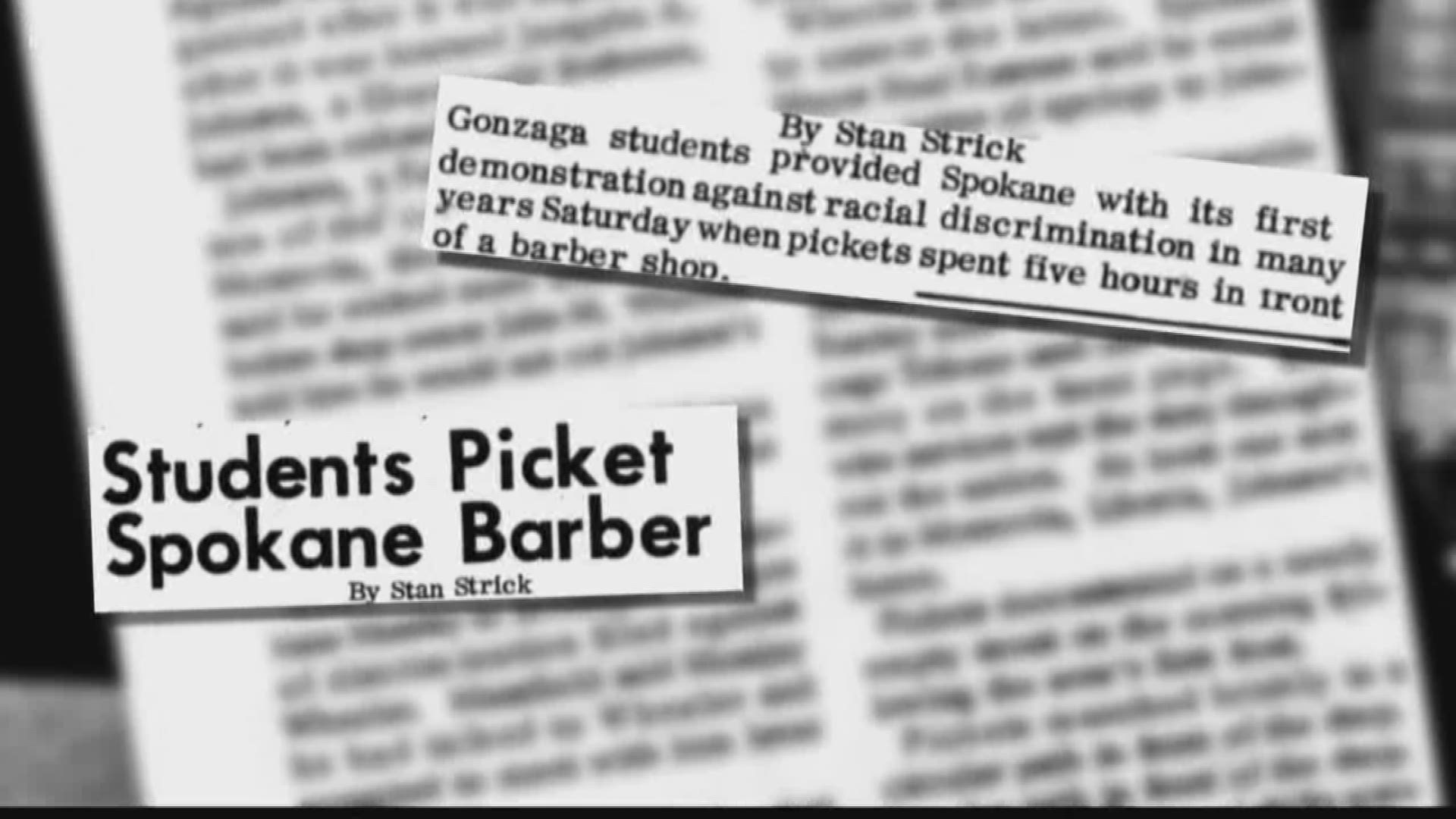SPOKANE, Wash. – Wednesday marks 50 years since Martin Luther King Jr.'s death. Even though Spokane was a very small community at the time, the city played its own role in the Civil Rights movement.
A protest called the “Haircut Uproar” made national headlines as black people continued to fight for their rights across the U.S. In October 1963, an African exchange student was refused service in Spokane because of his race, and a group of mostly white students stood by him.
It started when Jangaba Johnson, a student at Gonzaga University, decided to walk into a barbershop in downtown Spokane to get a haircut. He received haircuts from both white and black shop owners in his home country of Liberia but soon realized he was far from home.
“He was denied a haircut, he was kicked out of the barbershop,” Berea College history professor Dwayne Mack said.
Johnson, embarrassed and hurt, went back to his dorm at Gonzaga to tell other students what had happened. His story encouraged students to write a letter in protest to the shop’s owner John M. Wheeler on October 19, 1963.
"You had several students, a diverse group of students, who led a boycott, a picket in front of John Wheeler's barbershop, forcing the barbershop to close for that day,” Mack said.
News of the protest made national headlines as similar protests broke out across the U.S.
"It spread throughout the country like wildfire,” Mack said.
The battle continued in Spokane. Johnson's case was brought to the Washington State Board Against Discrimination with the counsel of civil rights lawyer Carl Maxey.
The board ordered Wheeler to stop refusing service based on race. Wheeler appealed the decision to a Superior Court judge who upheld the board’s decision.
“Instead of cutting [hair] or serving black people or people of color in Spokane, Wheeler decided to close his barbershop,” Mack said. "This Spokane story is connected to the national civil rights Movement. Without this local movement, you wouldn't have a national movement because while students are boycotting this barbershop, you have students elsewhere boycotting lunch counters, you have the Children's Crusade or campaign and Birmingham in 1963."
"Even though the numbers were small, they mounted a serious challenge against the final vestiges of Jim Crow,” he continued.
Mack wrote a book called “Black Spokane: The Civil Rights in the Inland Northwest,” detailing several events including Johnson’s story.

